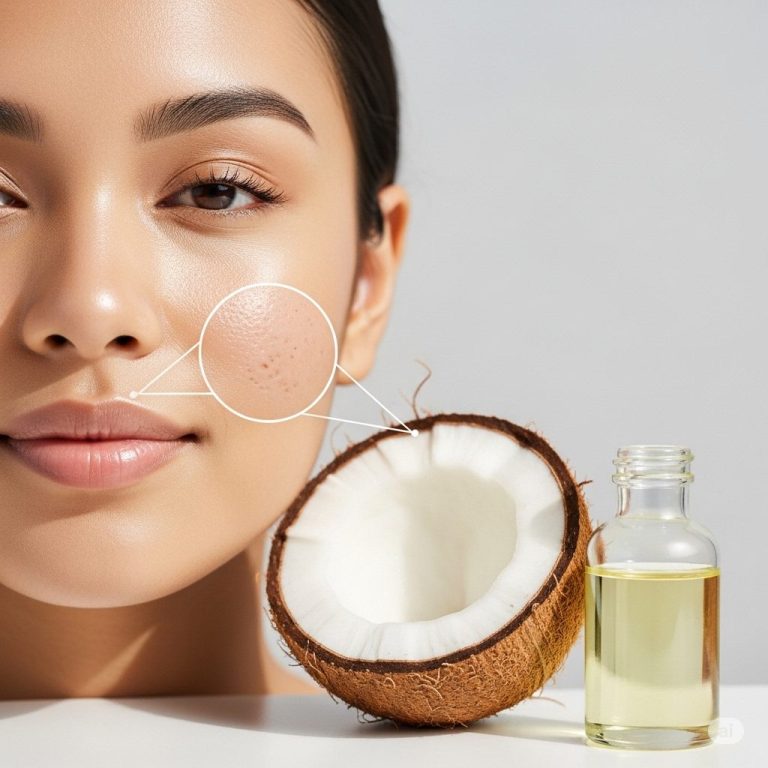Yes, coconut oil is highly comedogenic and can clog pores, especially for acne-prone or oily skin. It ranks 4 out of 5 on the comedogenic scale.
Check Coconut Oil in Our Ingredient Checker Tool
What Is Coconut Oil?
Coconut oil is a natural, plant-based oil extracted from the meat of coconuts. It’s known for its moisturizing and antibacterial properties, making it a popular choice in many skincare and haircare products.
Does It Clog Pores?
Yes. On the comedogenicity scale (0 to 5), coconut oil is rated 4, which means it has a high likelihood of clogging pores and causing acne in sensitive skin types.
- Comedogenic Rating: 4/5
- Skin Types Affected: Oily, acne-prone, sensitive
- Risks: Breakouts, blackheads, whiteheads
Scientific/Expert Sources
- A study published in the Journal of the American Academy of Dermatology found that coconut oil can lead to comedone formation in individuals with acne-prone skin.
- According to dermatologist Dr. Whitney Bowe, “Coconut oil is highly occlusive and may clog pores for many people, especially on the face.”
Non-Comedogenic Alternatives
If you’re looking for safe moisturizers that won’t clog pores, try:
- Jojoba Oil (comedogenic rating: 2)
- Squalane Oil (comedogenic rating: 1)
- Rosehip Seed Oil (comedogenic rating: 1)
Summary Table
| Ingredient | Comedogenic Rating | Suitable for Acne? |
|---|---|---|
| Coconut Oil | 4/5 | ❌ |
| Jojoba Oil | 2/5 | ✅ |
| Squalane Oil | 1/5 | ✅ |
| Rosehip Oil | 1/5 | ✅ |
FAQ
Q: Is coconut oil good for dry skin?
A: Yes, but it may clog pores. Apply only to body or patch test on your face.
Q: Can I use coconut oil on my body but not my face?
A: Yes. The skin on your body is typically less sensitive and prone to acne.
Q: Are products with coconut oil always bad for acne?
A: Not necessarily. Small amounts in a balanced formula may not cause issues, but check the product’s full ingredient list.
Sources
- Journal of the American Academy of Dermatology
- NIH – Comedogenicity of Ingredients
- Dr. Whitney Bowe’s Skincare Insights
- Pore Clogging Ingredient Checker
Want to check if a product clogs pores? Try our tool → PoreCloggingIngredientChecker.net
